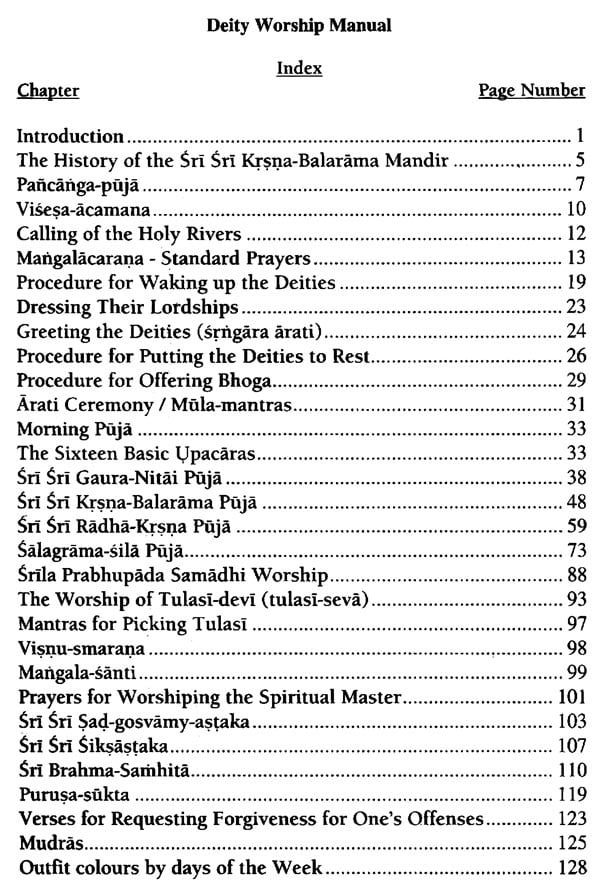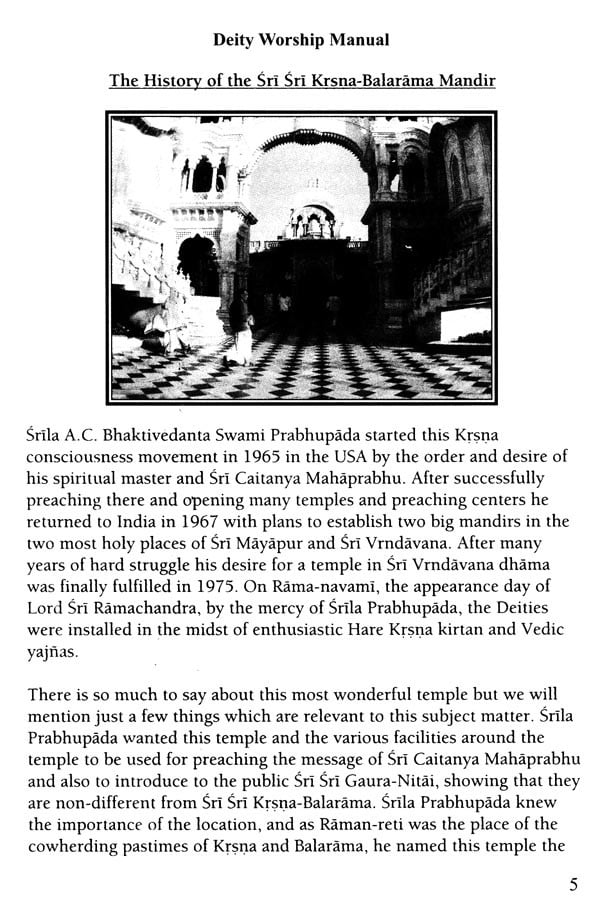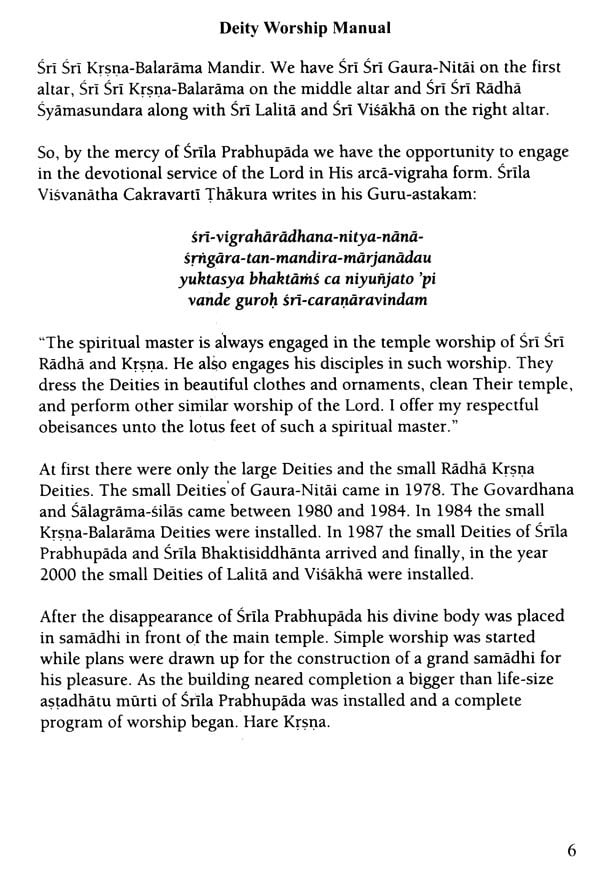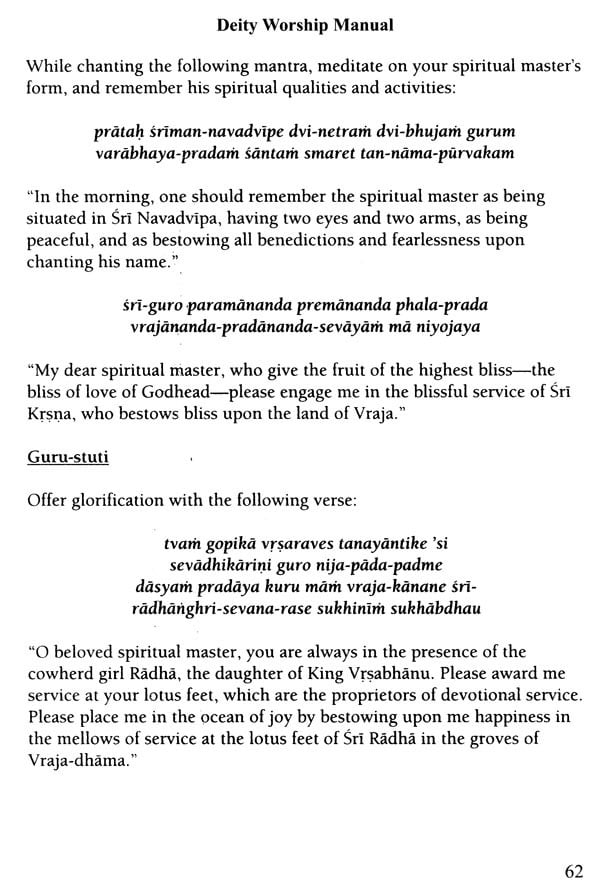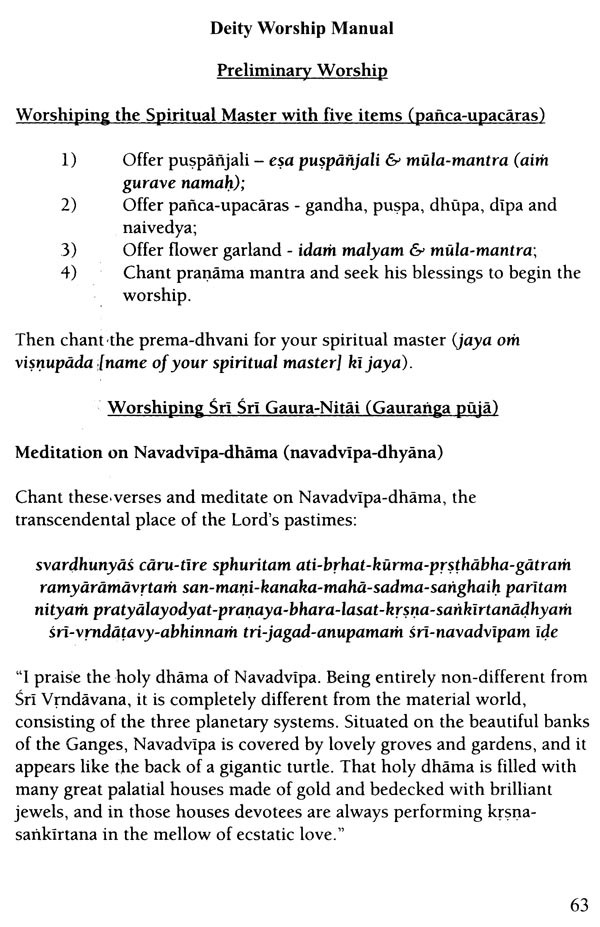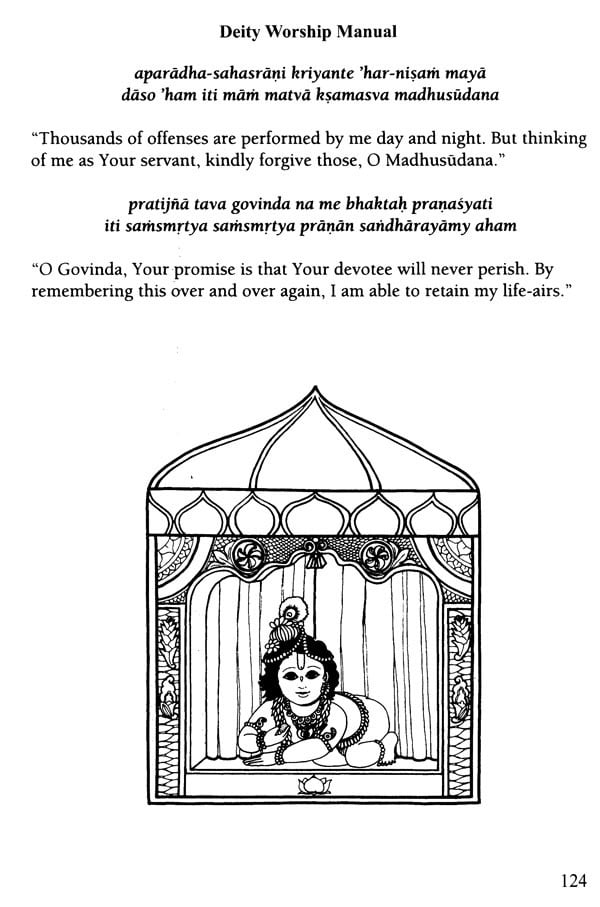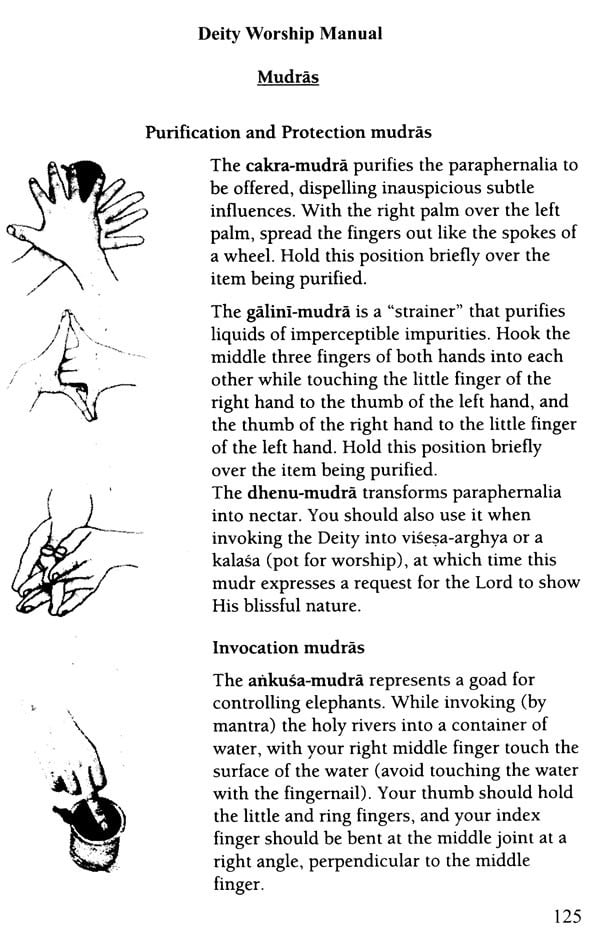
Deity Worship Manual- Sri Sri Krsna-Balarama Mandir
Book Specification
| Item Code: | UAB901 |
| Author: | A.C. Bhaktivedanta Swami Prabhupada |
| Publisher: | INTERNATIONAL SOCIETY FOR KRISHNA CONSCIOUSNESS |
| Language: | English with Roman Transliteration |
| Pages: | 128 (Throughout B/w Illustrations) |
| Cover: | PAPERBACK |
| Other Details | 8.50X5.50 inch Depth |
| Weight | 160 gm |
Book Description
For the pleasure of Srila Prabhupada, the Deities and the assembled Vaisnavis, and to assist the pujaris in their service at the Krsna Balarama Mandir, we would like to present the procedure of Deity worship in written form. This is our humble attempt to maintain the required standard and make necessary improvements. We are therefore also pleased to receive .any suggestions for improvement.
First of all we pray for the mercy of Sri Guru and Sri Gauranga that we may properly present this Arcana-Paddhati (Deity Worship Manual) according to guru, sadhu and sastra and also appropriately according to time, place and circumstances.
His divine Grace A.C. Bhaktivedanta Swami Prabhupada established this temple personally and so we try to maintain his standards and mood. Srila Prabhupada is completely in line with the teachings of his Guru- Maharaja, Srila Bhaktisiddhanta Sarasvati Thakur and the previous acaryas up to Srila Rupa Gosvami, who established the mood of Sri Caitanya Mahaprabhu. Rupa Gosvami is most respected and we therefore like to refer to ourselves as Rupanuga Vaisnava.
In the bhakti-rasamrta-sindhu, presented by Srila Prabhupada, Srila Rupa Gosvami explains that there are 64 limbs of devotional service, of which the first, namely guru-paddsraya, taking shelter of the spiritual master is most important. Then one takes diksa and siksa from the spiritual master, serves him, asks questions pertaining to the Absolute Truth, and follows the path given by him and the previous acaryas. The bona-fide spiritual master is situated on the highest platform of devotional service (uttama -bhakti, prema bhakti) and is serving the Absolute Truth Sri Krsna Caitanya and Sri Krsna in both Gauralila and Krsnalila respectively. The spiritual master introduces the disciple to the process of Deity worship (Pancaratrika-vidhi) and also engages the disciple in the process of hearing, chanting and remembering the Lord (bhagavat-vidhi).
Both processes are to be adopted by the sincere disciple in order to quickly advance in spiritual life. Furthermore, Srila Rupa Gosvami emphasizes those processes he considers most important: 1) Sadhu- sanga, 2) Bhagavat-sravana, 3) Nama-kirtana, 4) Mathura-vasa, 5) Area- vigraha-seva. Many of the other items of devotional service are dependent on and closely related to the process of Deity worship. We can therefore understand the importance of Deity Worship.
Sri Caitanya Mahaprabhu appeared 500 years ago to spread the yuga- dharma, the chanting of the Mahamantra (holy names of Krsna) :
Hare Krsna Hare Krsna Krsna Krsna Hare Hare
Hare Rama Hare Rama Rama Rama Hare Hare
He declared that the chanting of the holy name is the only way to attain love of God and there is no other way to the spiritual realm. This is mentioned in the Caitanyacaritamrta [Adi l7.21] :
hare nama hare nama hare namaiva kevalam
kalau nasty eva nasty eva nasty eva gaur anyatha
"In this age of quarrel and hypocrisy the only means of deliverance is chanting the holy name of the Lord. There is no other way. There is no other way. There is no other way."
The essential message of the scriptures is to always remember Krsna and to never forget Him. The hearing and chanting of the holy name is the best way to remember Krsna. The same thing is stated in the Padma Purana:
smartavyah satatam visnur vismartavyo na jatucit
sarve vidhi-nisedha syur etayor eva kinkarah
"Krsna is the original Lord Vishnu. He should always be remembered and never forgotten at any time. All the rules and prohibitions mentioned in the sastras should be servants to these two principles."
Book's Contents and Sample Pages
